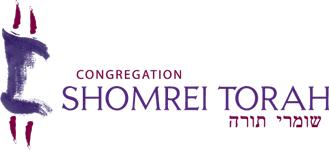Hineini, here I am. Tonight I want to explore with you this rare – it only appears 8 times in Torah – and important word.
Hineini. The first hineini is uttered by Abraham as a response to God’s call at the beginning of the Akedah, the story of Abraham’s near sacrifice of his son Isaac that we read during Rosh Hashannah. Vayomer elav “Avraham,” vayomer, hineini.” God calls to Abraham – “Avraham”–and Abraham, always ready to do God’s will, responds, Hineini, here I am. A little later in this terrifying tale Isaac calls out to his father, perhaps in fearful anticipation of what is about to happen, “Avi” (My father), and Abraham again responds, “Hineini b’ni”, (here I am, my son). And finally right as Abraham is about to slit his son’s throat, an angle calls twice to Abraham, “Avraham(!), Avraham(!) and again Abraham says, “Hinei” (Here I am).
Each time Hineini appears in the Torah, it marks a pivotal moment in the narrative. When Jacob tricks his blind father Isaac into giving him and not Esau his blessing, he calls after him “Avi” (My father) and Isaac responds “Hineini.” When Jacob, now a father himself, calls his favorite son Joseph in order to set him off to look after his brothers, Joseph answers “Hineini” as well, not knowing that this errand will soon result in his being sold into slavery by those very same brothers. Twenty years pass, and Jacob sets out to meet Joseph, his long lost son. On the way, Jacob falls asleep for the night and God comes to him in a dream: “Yaakov, Yaakov–Jacob, Jacob,” God calls. How does Jacob respond? “Hineini,” here I am. And later, when God calls to Moses from the burning bush: “Moishe! Moishe!”–“Moses! Moses!”—he too answered “Hineini.”
Hineini! What are we to make of this potent and important word? I see hineini at work on two planes, the vertical – a response to God – and the horizontal – a response to another human being…

One thought on “Rosh Hashanah Sermon: Hineini”
Comments are closed.